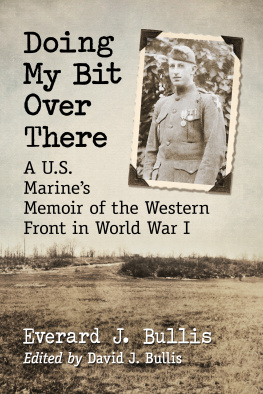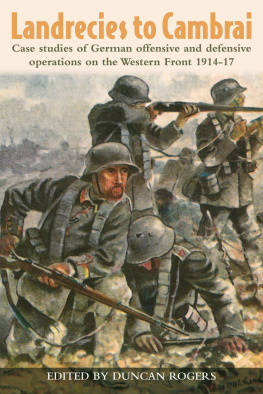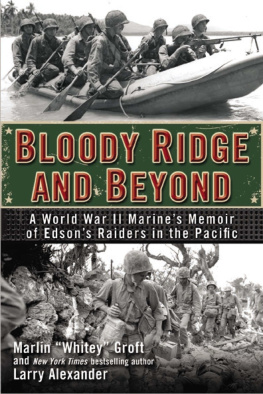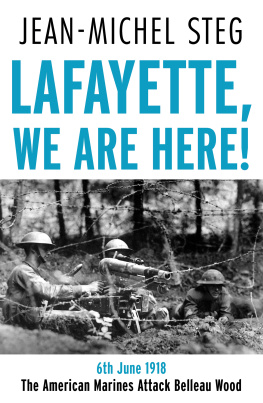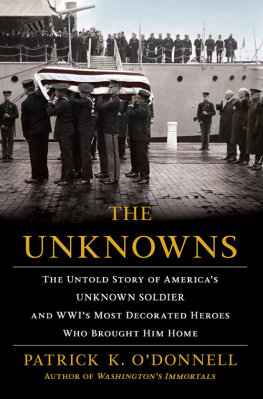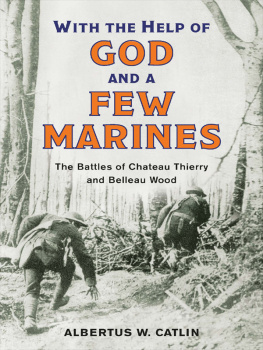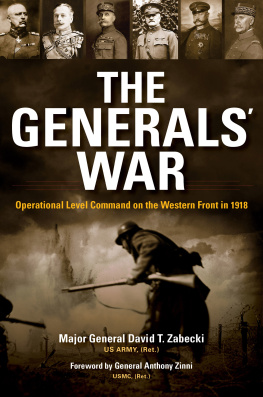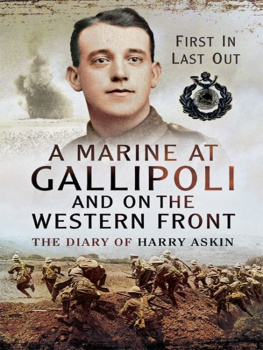
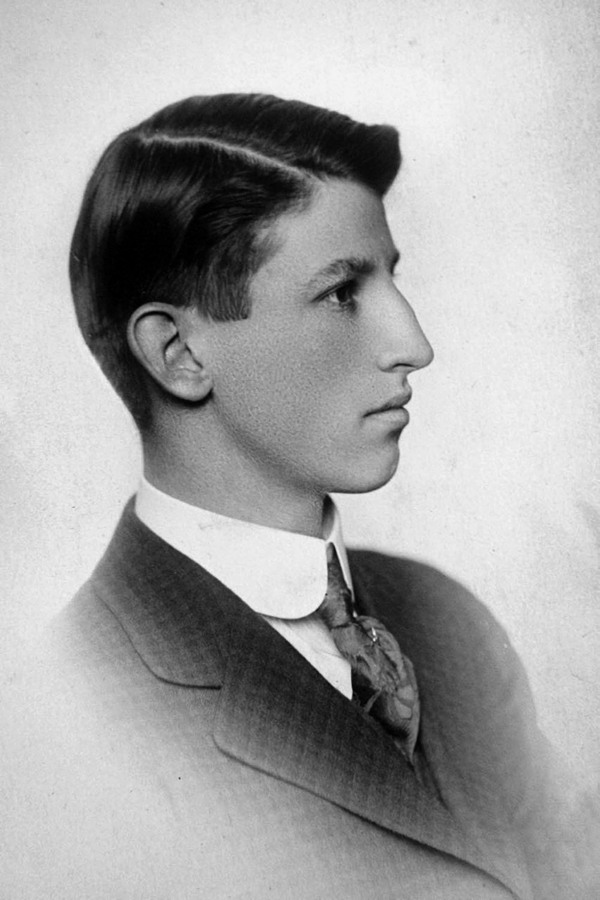
Everard as a young man (courtesy Robert G. Bullis).
Doing My Bit Over There
A U.S. Marines Memoir of the Western Front in World War I
EVERARD J. BULLIS
Edited by David J. Bullis

McFarland & Company, Inc., Publishers
Jefferson, North Carolina
LIBRARY OF CONGRESS CATALOGUING DATA ARE AVAILABLE
BRITISH LIBRARY CATALOGUING DATA ARE AVAILABLE
e-ISBN: 978-1-4766-3278-0
2018 Everard J. Bullis. All rights reserved
No part of this book may be reproduced or transmitted in any form or by any means, electronic or mechanical, including photocopying or recording, or by any information storage and retrieval system, without permission in writing from the publisher.
Front cover image of Everard J. Bullis postwar (author collection); background a close up view of the Belleau Wood showing the hard fought ground captured by the American Army in 1918, Schutz Group Photographers, Washington, D.C. (Library of Congress)
McFarland & Company, Inc., Publishers
Box 611, Jefferson, North Carolina 28640
www.mcfarlandpub.com
For my Grandfather,
who did his bit
and to all those doing their bit.
David J. Bullis
Acknowledgments
First, I would like to thank SSG Steven C. Girard (Ret.), World War I Marine Corps Archivist/Historian, for his interest in the book and for his provision of pictures. I greatly appreciate them.
Marilyn Sears deserves many thanks for reviving my sluggishness in finishing the book. It doubtless would not have been completed in a timely manner without her encouragement.
Deborah Taylors generous help at the last minute in printing and other necessary details helped me meet my due date. I give her my sincere thanks. She is much appreciated.
Thanks go to my son, Ryan, for his expertise with the computer, in saving and restoring my lost manuscript. His contribution saved me much labor and he has done sundry other things.
My sister Deanna deserves great credit in introducing me into the use of the computer. I was sorely lacking in this skill, and she provided and patiently instructed me in its use. This was of no little consequence in continuing my work on the book.
Don Bullis came to my aid at a time when I was under pressure in getting many photos ready. He brought them up to specification. He has my thanks.
French historian Gilles Lagin was exceeding generous in providing appropriate photos and a map. I am very grateful to him and for his enthusiasm in providing what I needed for the book.
And finally, my esteem goes to Barbara Bullis, who eagerly came to my assistance in the final stages of completing the book. She, well qualified, acted as assistant and secretary. Her help cannot easily be measured. And the word help seems such a simple word to describe her willing labor and aid. But its inherent meaning describes her contribution quite well. From the dictionary, help is the simplest and strongest of these words (synonyms) meaning to supply another with whatever is necessary to accomplish his endsand so has she been to me.
David J. Bullis
Preface
David J. Bullis
My grandfathers memoir of his experiences in the Great War came into my hands a few years ago. After reading it, I saw a book. I then set myself to the editing of his work. I established chapters, named chapter headings, cut it into parts, (which for the most part were already in place), added punctuation, and ordered paragraphs, all the while maintaining the integrity of the text.
His story is the story of four major battles the Marines fought in World War I: Belleau Wood; Soissons; St. Mihiel; and Blanc Mont. And these are foundational in learning of the Great War in 1918. In the pages of the book, we see a firsthand account of front line battle. My grandfather won a Purple Heart, and in the book describes what he went through in surviving his wound. We also see historic figuresGeneral Pershing, Captain Frank Whitehead, and Major George Hamiltonnames that should be remembered for their historical import.
To be sure, historians will have great interest in my grandfathers work. Marines also will be interested in this historical piece. Men and women who love history will find it to their liking. Even those who dont read it for historys sake will read it with anticipation. And it would be good reading for high schools, colleges, and universities. As a final note, the centennial of the above battles is 2018.
Introduction
David J. Bullis
This is not a history booknevertheless, it is historical. It is a story of adventure, of hardship (War is hell, as the general said), humor, camaraderie, and doing ones bit.
Doing ones bit, as it then was commonly calledthat was the motivation of a certain young man in 1917. Driven by patriotism, a love of country, and indignation toward the enemy, he wanted to fight.
Before he came of age, and when he learned in the news of General John J. Black Jack Pershing leading a troop into Mexico, giving chase after Pancho Villa, he asked his father if he could enter the service. His father said, No. So he bided his time.
But when war was declared against Germany in April of 1917, now twenty, he made up his mind to go. He at first thought as an officer:
I am excited. The Army intends on opening a Reserve Officers Training Camp at Fort Snelling; so I submitted my application. three recommendations. Major George Sheppard, George Brack, and Mr. Andrew Boss: a wounded hero of the Spanish-American War a banker in St. Pauls largest bank; and a nationally known Educator. Well, they ought to be good enough for anyone.
But they werent. He was only twenty; he needed to be twenty-one.
Well, so long to becoming an officer. I wont wait.
So he joined the Marines June 9 of 1917.
I left work at noon and proceeded to look at enlistment posters. I viewed them all, and, at last, being enticed by an alluring tropical scene of a serviceman dressed in whites, on a palm studded beach with cute girls dancing in native costume, I climbed the stairs.
Then he had to spring the news on his family.
At supper that night. Mother was standing across the table from me: Dad in his place at the head of the table: Lillian on my right: and on my left, Ruth, Vera and last, Esther.
I blurted out, I enlisted today.
Mothers worried exclamation followed, Enlisted?
Then dads voice, In what?
Then a medley of questions from the girls, from mother, and from dad.
It seemed that all of St. Paul, Minnesota, turned out to send off the 53 new recruits:
We assembled on the street, and soon paraded up 6th Street to Rice Park, where there were to be going away ceremonies. It was my first parade in the Marines, and it was long remembered. It was hard to return the many greetings of Hi, Ev, that I received along the way. Many of my parents friends were there, the women smiling and waving, only to break into tears as we passed. At Rice Park, we were crowded into the center around the speakers podium by several thousands of people. We were to be honored by two of St Pauls leading citizens, who in turn gave us long, tiresome speeches: Heros, etc., going to war. The train on which we were supposed to leave was scheduled to depart at 8:00 p.m.; but 8:30 came; then 9:00 oclock passed; and we were still standing. James J. Hill, past president and builder of the Great Northern Railway, one of the speakers, had held the train for us. Bishop Ireland, who was still extolling our bravery, finally came to a halt in his speech; and we moved out. I leaned from the window and waved my last good-byes to mother, dad, and my sisters, until I could see them no more.
Next page
